Life
Sign up for our newsletter
We summarize the week's scientific breakthroughs every Thursday.
-
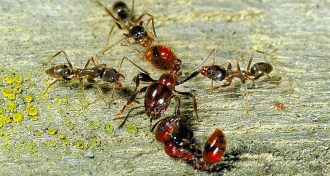 Animals
AnimalsInvading Argentine ants carry virus that attacks bees
The first survey of viruses in the globally invasive Argentine ant brings both potentially bad and good news.
By Susan Milius -
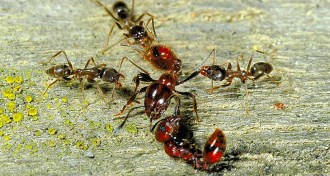 Animals
AnimalsInvading Argentine ant hordes carry a virus that attacks bees
Invasive Argentine ants may be reservoirs for a virus menacing honeybees — and for previously unknown virus.
By Susan Milius -
 Earth
EarthEarth’s magnetic mystery forces scientists to get creative
In explaining the Earth’s magnetic field paradox, scientists may discover a new question with an even more interesting answer.
By Eva Emerson -
 Anthropology
AnthropologyImmortality and more in reader feedback
This week in reader feedback: Immortality and tracing ancient humans.
-
 Animals
AnimalsApes do the darndest things
Several chimp behaviors have researchers wondering if apes are a good model for early hominid life.
By Bruce Bower -
 Neuroscience
NeuroscienceMisfolded proteins implicated in more brain diseases
Alzheimer’s, other disorders show similarity to Creutzfeldt-Jakob disease and other prion infections.
-
 Life
LifeSmall number of genes trigger embryo development
New views of early embryo development reveal differences between humans and mice.
-
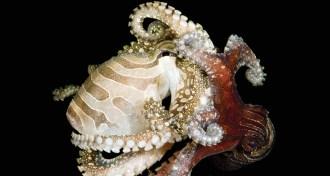 Animals
AnimalsWhen octopuses dance beak to beak
The larger Pacific striped octopus does sex, motherhood and shrimp pranks like nobody else.
By Susan Milius -
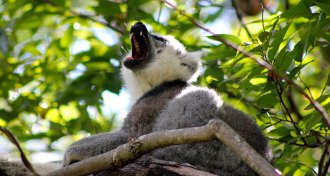 Anthropology
AnthropologyMinutes after encountering danger, lemurs yawn
Madagascar primates yawn within minutes of encountering threats.
By Bruce Bower -
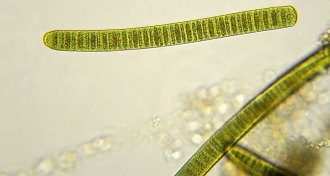 Oceans
OceansEarth got first whiff of oxygen 3.2 billion years ago
Photosynthesis by early cyanobacteria pumped oxygen into Earth’s oceans 200 million years earlier than once thought, new geochemical analyses show.
-
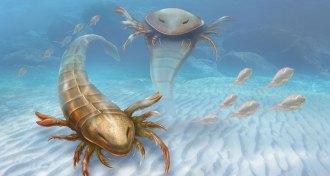 Paleontology
PaleontologyEarliest sea scorpion discovered in Iowa
Earliest sea scorpion discovered in impact crater in Iowa.
By Meghan Rosen -
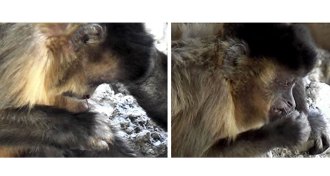 Animals
AnimalsA monkey uses a stick to pick its teeth and nose
A wild bearded capuchin monkey in Brazil was caught using tools to pick its nose and teeth.
By Erin Wayman